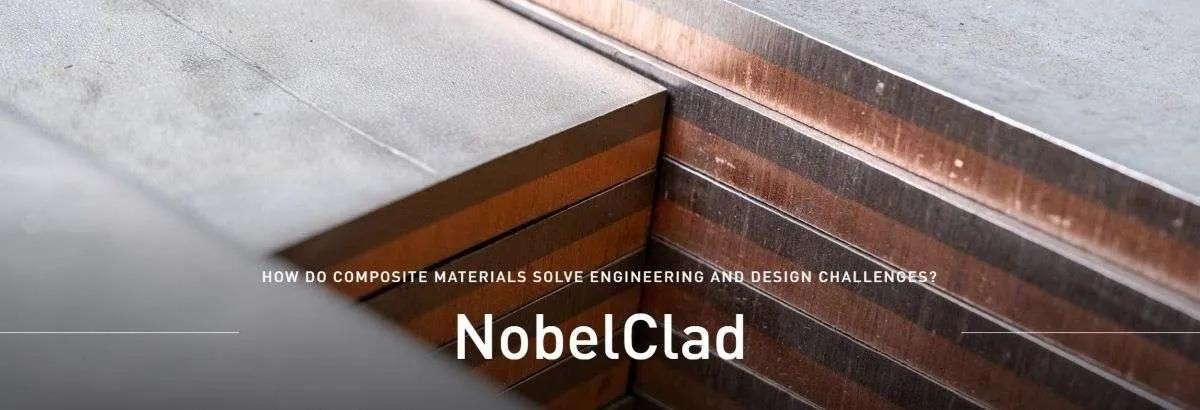DetaClad™ Composite Products
NobelClad composite plates (manufactured using NobelClad’s proprietary DetaClad explosive bonding technique) are exceptionally strong, lightweight, and highly resistant, as they combine different metals, merging the best properties of each material. Thanks to their outstanding corrosion resistance, heat resistance, and mechanical strength, they are ideal for industries such as oil and gas, chemical, marine applications, and many others. Explore our composite plates and ensure maximum performance and durability for your projects!
| |
|
Introducing DetaClad™ composite products! |
|
In collaboration with NobelClad, the world leader in clad plate manufacturing, BIBUS Metals is pleased to offer DetaClad™ products. The most demanding industries rely on NobelClad's patented explosive welding process to produce clad plates designed for specialized corrosion, mechanical, electrical, and temperature-related applications. |
|
What is CLAD, or Composite Sheet? |
DETACLAD™ Application Areas | ||
|
It combines the best properties of both metals! Explosion bonding is a cold welding process that connects different metals with specific parameters while preserving the advantages of each metal. By combining a corrosion-resistant alloy with a more affordable metal, it offers a cost-effective solution, enhances corrosion resistance, results in composite mechanical properties, and reduces manufacturing downtime and maintenance. NobelClad is the only company offering more than 260 different metal combinations, with high strength and high tensile strength. |
OIL AND GAS |
ENERGY | |
|
|
| ||
|
Upstream separation and processing, downstream refining. |
Condensers, polysilicon manufacturing, biofuels, and geothermal applications. | ||
|
CHEMICAL |
METAL MINING AND PROCESSING | ||
|
| |||
|
PTA, acetic acid, nitric acid, and chlorate production. |
Autoclaves, reduction vessels, aluminum and zinc smelting anode and cathode forming electrical transition connectors. | ||
|
INDRUSTRIAL COOLING |
TRANSPORTING | ||
|
|
| ||
|
From small cooling units to large institutional HVAC systems. |
Transition connectors in railway cars and shipbuilding. | ||
|
The Range of DETACLAD™ Capability |
|
DetaClad™ plates are used for reliable, flat, cylindrical, and custom-shaped applications, such as layered heads, pipe elements, large plates, and cylinders. Available in 260 compatible and incompatible metal combinations, DetaClad plates and cylinders form the foundation of global pressure vessels, coke drums, towers, and crystallization equipment. NobelClad transition connectors are used for the final welding of metals without mechanical fasteners, as well as for connecting electrical connections.
DetaPipe™ reactive metal pipe sections and elbows are also available for high-pressure and high-temperature systems. This new technology allows end users to take advantage of corrosion resistance and process safety. |
The explosion welding process – Watch the video
|
· Cladder plate thickness: 1 – 50mm |
· Claddings: zirconium alloys, titanium alloys, stainless steels, duplex stainless steels, tantalum, niobium, nickel alloys, copper-nickel alloys, brass. |
|
· Base plate thickness: 1 – 1,000mm | |
|
· Windth: max. 5m | |
|
· Lenght: max. 15m | |
|
· Weight: max 50 tons |
· Backings: carbon steels, stainless steels, and other low-alloy steels. |
|
PLATES |
PIPE CAPS |
BEVELS |
PIPE SHEETS |
FLANGES |
|
|
|
|
POX autoclave |
PTA heat exchanger |
|
316L Reactor |
DetaPipe™ Reactive metal tube segment |
Contact us if you have any questions.
Contact BIBUS METALS